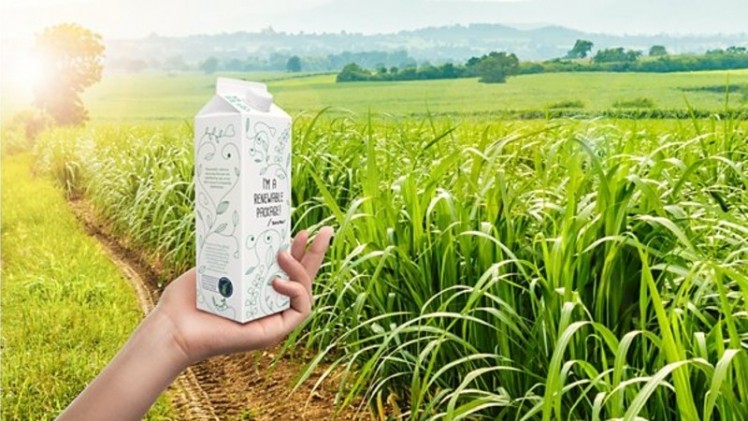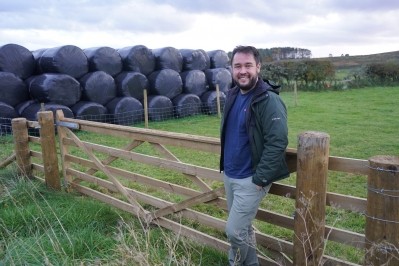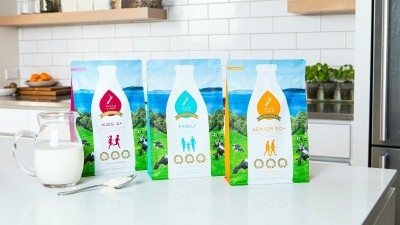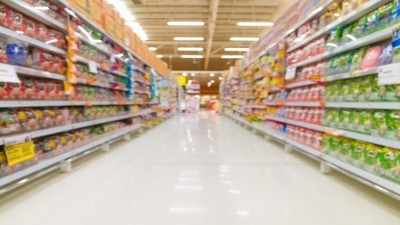Balancing food safety and sustainability: Demand for secure, resealable packaging skyrockets amidst COVID-19 – Tetra Pak

According to the Tetra Pak Index Report 2020 which surveyed over 9,000 consumers worldwide to assess current consumer concerns, COVID-19 emerged as the top concern (64%) when it comes to current consumer priorities in 2020, exacerbating concerns about food safety and security and beating out environmental sustainability concerns from 63% in 2019 to 49%.
“COVID-19 has significantly focused attention on hygiene and food safety, with more than two-thirds (68%) of consumers worldwide now believing that food safety is a major concern for society,” Tetra Pak Managing Director for Malaysia, Singapore, Philippines and Indonesia Michael Wu told FoodNavigator-Asia.
“[As a result], there is now an increased demand for packaged food instead of loose, as well as an increased demand for secured food and drinks with ‘tamper-proof’ seals. [Our] findings show that there is particular concern around how products are stored in stores or markets (43%), as well as industrial production (36%), packing (36%) and sourcing (34%).”
All of the above highlight the importance of good packaging, with the top six food packaging characteristics rated to be the most important relating to food safety, e.g. ensuring the product being free from contamination (71%), providing good protection (70%) and helping to maintain freshness (68%).
“[This has been prominent in South East Asia too, where] in Malaysia, food safety and packaging became one of the most talked-about topics after COVID-19 hit, particularly when information started circulating about the possibility of infection after contact with contaminated food packaging [and] in Indonesia, more consumers [opted] to purchase packed coconut cream instead of loose coconut cream which they would normally buy from open markets,” said Wu.
“According to KARA, one of Indonesia’s top coconut brands and a customer of Tetra Pak, the pandemic has accelerated shifting consumer preferences towards packed coconut cream as consumers increasingly understood the value of packaging to ensure hygiene, convenience, and nutrition.”
Packaging elements that have risen in importance since COVID-19 hit include expiry dates, lids and caps – especially those providing the option for resealing.
“[Half] of the consumers surveyed for the report said that they feel reassured if a product has either a lid or a cap,” said Wu.
“[In addition], 58% cited that ensuring a package is kept well-closed after opening helps keep food safe – further demonstrating the importance of a resealable or re-closable lid or cap [to consumers these days].”
Overall, Wu stressed that food safety concerns have now gained pace to overtake sustainability as a major concern for consumers when it comes to food packaging, leading to the rise of a ‘Food safety-environment dilemma’.
“[These findings] underscores that food safety, particularly during this pandemic, is non-negotiable, even when compared with other factors that they highly rate such as environmental considerations,” he said.
“[However], as the appetite for change and opportunities to ‘build back better’ post pandemic grows amongst consumers, concern for the environment remains strong - About 42% said they were concerned about environmental issues and 52% believed that sustainable packaging is a high priority for companies to tackle.
“This suggests an appetite for responsible packaging solutions, helping consumers to address the dilemma they face between food safety and the environment.”
Balancing food safety and sustainability
These ‘responsible packaging solutions’ would doubtlessly also need to be sustainable, and according to Wu, Tetra Pak believes that the answer lies in plant-based resources.
“Plant-based renewable resources are natural materials, such as wood and sugarcane, that absorb CO2 from the atmosphere as they grow. The greater the share of renewable materials a package contains, the lower the climate impact, [making] renewable packaging an important part of the move towards a low-carbon circular economy,” he said.
“Tetra Pak believes that carton packages are [the] more sustainable alternative - We have come up with hundreds of sustainable carton packaging solutions that not only help keep food safe from harmful bacteria, but also, are mainly made from plant-based materials, are recyclable and responsibly sourced with a reduced carbon footprint.
“As our packages are mainly paperboard, and gain their strength and sturdiness from carton, we only need thin layers of plastic to protect the contents. This means [food manufacturers] can reduce the amount of plastic in their packaging.
“We are also the only supplier in our industry using plant-based plastic (made from sugarcane) in our package layers and caps, e.g. the Tetra Rex® 1000 Base Plant-based with plant-based cap, manufactured exclusively from paperboard and plant-based plastic.
The firm is also currently attempting to develop ‘the world’s most sustainable package’ in response to current requirements.
“The ultimate sustainable package should be circular and minimize its impact on nature and the environment - In addition to being fully recyclable [it] should be made of fully renewable or recycled materials [in addition to being] convenient and safe, enabling a resilient food system that can support the world’s growing population,” said Wu.
“Tetra Pak is already on the journey to creating this package – the world’s most sustainable package.”



















